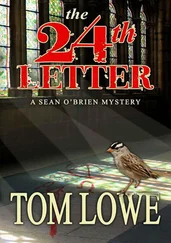“Miss Voncille,” Silas said. “You went to Fulsom High, didn’t you? Did you know Larry Ott?”
“Not really, hon,” she said. “Just of him. He was a few years behind me.”
The CI winked at Silas. “You ever go out with him, Voncille?”
“Just the once,” she said. “I was never heard from again.”
French snorted. “We wish.”
SILAS HAD BEEN driving north on Highway 11 for ten minutes before he realized he was heading toward Larry Ott’s garage. It was early afternoon, the rain gone at last, puddles steaming in the road, a spongy dog of some unidentifiable breed shaking water from its fur. He ought to be over on 7, watching for speeders, getting his quota for the week, make a little cash for the city kitty, but something was gnawing at him.
Larry’s first phone call had been nearly two years ago. Silas didn’t use his landline much and had gone a couple of days without noticing the answering machine had been blinking.
“Hello?” the voice said when he mashed the button. “Hello? I hope I got the right number. I’m looking for Silas Jones. If I got the wrong number I apologize.”
He had stared at the phone. Nobody called him Silas anymore. Not since his mother died.
“Silas?” the recording went on. “I don’t know if you’ll remember me, but this is Larry. Larry Ott? I’m sorry to bother you, but I just wanted to, um, talk. My number is 633-2046.” Silas made no move to copy it down as Larry cleared his throat. “I seen you was back,” he continued. “Thank you, Silas. Good night.”
He’d never returned Larry’s call-if Larry had phoned him at Town Hall instead of home, he would’ve had to.
But then, instead of taking the hint, Larry tried again. Eight-thirty, a Friday night, couple of weeks later, Silas had stopped in for a change of clothes, on his way to eat, a date with some girl. Before Angie. When the phone rang he picked up and said, “Yeah?”
“Hello? Um, Silas?”
“Yeah.”
“Hey.”
“Who’s this?”
“It’s Larry. Ott. I’m sorry if I’m bothering you.”
“Yeah, I was just heading out.” The heat trickling from his chest. “What’s up?”
Larry hesitated. “I just wanted to, you know, say welcome back. To the crooked letter.”
“I gotta go,” Silas said and hung up. He’d sat on the bed for half an hour, the back of his shirt stuck to his skin, remembering him and Larry when they were boys, what Silas had done, how he’d beaten Larry when Larry said what he said.
Silas felt clammy now as he drove. Since leaving he’d known Larry was ostracized, but it wasn’t until he’d returned to lower Mississippi that he heard everything that had happened.
He rolled the Jeep up behind a log truck and slowed, the rag stapled to the longest pole fluttering. Taillights were fine, tag good. He eased over in the opposite lane and mashed the accelerator and the Jeep backfired. Piece of shit.
He tooted his horn as he passed the truck, leaving clouds of ugly black smoke, and the driver blew his air horn back.
French was right that Ottomotive Repair hadn’t had a local customer-or any customer, really-since Larry’s father had died and Larry’d taken over. Silas could testify: in all the times he’d driven past on his way to Fulsom, he was yet to see anyone get their car fixed. Nobody but Larry there, that red Ford. Still, he showed up to work every day, waiting for somebody on his way to someplace else, somebody who didn’t know Larry’s reputation, to stop in for a tune-up or brake job, the bay door always raised and waiting, like something with its mouth open.
Larry was taller now, thinner. Silas hadn’t seen him close but his face looked thin, his lips tight. Used to be, his mouth always hung open, giving the impression he was slow. But he wasn’t. He was smart. Knew the weirdest shit. Once told Silas a king cobra could grow to over sixteen feet long and raise eight or nine of those feet into the air. Imagine it, he’d said. Like a giant swaying scaled plant from another time looking down at you right before you died.
Silas passed the Wal-Mart and then the arrowed sign to Fulsom’s business district. Soon the road bottlenecked down to a two-lane and the businesses became sparse, the sidewalks cracked, sprouting weeds, buildings posted, windows and doors boarded. He passed what used to be a post office. He passed a clothing store that had gone so long without customers it’d briefly become a vintage clothing store without changing stock. Building on his right was an ex-Radio Shack, windows busted or shot out and the roof fallen in so thoroughly the floor was shingled, the walls beginning to sag and buckle. The only businesses still open on this end were a cheap motel that catered to quickies and Mexican laborers and the garage he was approaching, OTTOMOTIVE REPAIR painted on the side in fading green letters.
Larry’s pickup, as French had said, wasn’t in its usual spot, the bay door closed. Silas slowed. He signaled and turned into the garage lot and came to a stop by the gas pumps, as if he wanted to fill up. This the closest he’d been to the shop since…well, he’d never been this close. The two antique pumps hadn’t worked in years, though, and looked like a pair of robots on a date. In raised, white-painted numbers on metal tape readouts were the prices when they’d last been used:.32 regular and.41 ethyl.
Silas switched the Jeep off, his eyes settling on the rectangle of dead grass by the shop where, except for a stint in the army, Larry had parked every day since he quit high school. The same truck. Driving the same miles to and from the same house. Same stop signs, stop lights. Nothing to show but dead grass.
Inside the shop, he knew, there was a red toolbox, a pump handle jack, creepers against the wall, drop lights hanging from the ceiling. Occasionally as he drove past, Silas had seen Larry leaning on his push broom watching cars. Silas would front his eyes as if he had someplace important to go. Other days Larry would have rolled his toolbox out on its casters so he could watch traffic as he wiped his wrenches and sockets with a shop rag. Sometimes he’d wave.
Nobody waved back. Nobody local anyway. But say you were from out of town, you were passing through with your brakes squealing, a bearing singing, a knock in the shocks, maybe. Say you’d been worried about breaking down when you saw the white cinder block shop, quaint, green-painted trim flaking off, the building itself the color of powder laundry detergent, maybe you’d slow down and pull in. You’d notice the gas pumps and smile (or frown) at the prices. You’d see no other customers and count yourself lucky, for by now Larry would be walking outside pulling a rag from his pocket, his name on his shirt. Short brown hair, cap pulled too low over his ears.
Lucky you.
But you wouldn’t know his reputation. That, in high school, a girl who lived up the road from Larry had gone to the drive-in movie with him and nobody had seen her again. It had been big news, locally. Her stepfather tried to have Larry arrested but no body was found and Larry never confessed.
Silas looked at his watch then sat a moment longer. He had known Cindy Walker, too. The missing girl. In a way, Larry had introduced them.
He glanced up the road.
Where the hell was Larry? Probably sitting at home, reading Stephen King. Maybe he finally took a day off. Or gave up.
But still the gnawing. What if some relation of the current missing girl, Tina Rutherford, dwelling on Larry’s reputation, had taken it upon himself to pay Larry a visit?
Look at you, 32 Jones, he thought. You done ignored the poor fucker all this time and now all the sudden you care?
“32?” The radio.
“Yeah, Miss Voncille?”
“You need to get over to Fourteenth and West. It’s a rattlesnake in somebody’s mailbox.”
Читать дальше












